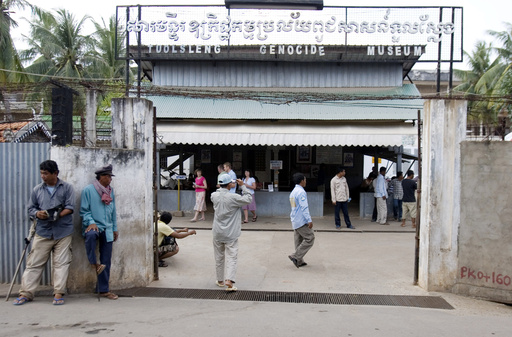
PHNOM PENH, Cambodia — On Tuesday, Cambodian lawmakers passed a bill aimed at increasing the penalties for individuals who deny the atrocities committed during the Khmer Rouge regime in the late 1970s. This devastating period is associated with the deaths of approximately 1.7 million people, and the new legislative measure reflects the government’s intent to ensure that such horrors never happen again and to seek justice for the victims.
The National Assembly confirmed that all 115 members present voted in favor of the legislation. The bill comprises seven articles, with provisions that establish penalties of up to five years in prison and fines ranging from $2,500 to $125,000 for those found guilty of denying the historical facts surrounding the Khmer Rouge’s actions.
In 2013, a similar law was enacted following remarks made by then-Prime Minister Hun Sen, who expressed concern about an opposition lawmaker’s suggestion that evidence regarding the Khmer Rouge atrocities might have been fabricated. That earlier legislation carried lighter sanctions, with potential prison terms of six months to two years and fines up to $1,000.
Critics have argued that the original law was a strategic move to weaken political opposition, and there are suspicions that the recently approved amendment serves a similar purpose. The new bill is specifically aimed at penalizing individuals who either refuse to recognize the crimes documented by a U.N.-backed tribunal or actively dispute them.
The tribunal, which began hearings in 2009, concluded that the Khmer Rouge government engaged in genocide, crimes against humanity, and serious violations of the Geneva Conventions, along with many breaches of Cambodian law and international humanitarian standards recognized by Cambodia.
The timing of the law’s adoption is notable, as it comes just two months before the 50th anniversary of the Khmer Rouge’s rise to power on April 15, 1975, following five years of civil strife. The bill will proceed to the Senate for a pro forma approval before it is ultimately sanctioned by King Norodom Sihamoni.
The Khmer Rouge, led by Pol Pot, ruled until 1979 when they were overthrown by a Vietnamese invasion. Their extreme policies resulted in widespread famine, executions, and disease, causing an estimated 1.7 million deaths. Despite a few remaining senior Khmer Rouge leaders, it is widely accepted by those who survived that the regime was responsible for egregious human rights violations on a grand scale.
In May 2024, Hun Sen, who once served as a mid-level officer under the Khmer Rouge before defecting, proposed updating the 2013 law. His administration has garnered criticism for using legal intimidation against opponents, as many see the courts as extensions of his political party’s influence. Although Hun Sen stepped down in 2023 in favor of his son, Hun Manet, he continues to exert considerable power as president of the Senate and leader of the Cambodian People’s Party.
Moreover, he warned that his opponents could incite unrest reminiscent of the color revolutions in Ukraine and other nations, which he claimed could result in a genocidal conflict akin to the Khmer Rouge era, thereby recalling the nation’s painful history. The tensions between political factions continue to shape the landscape of Cambodian governance in the aftermath of such a tragic chapter.

